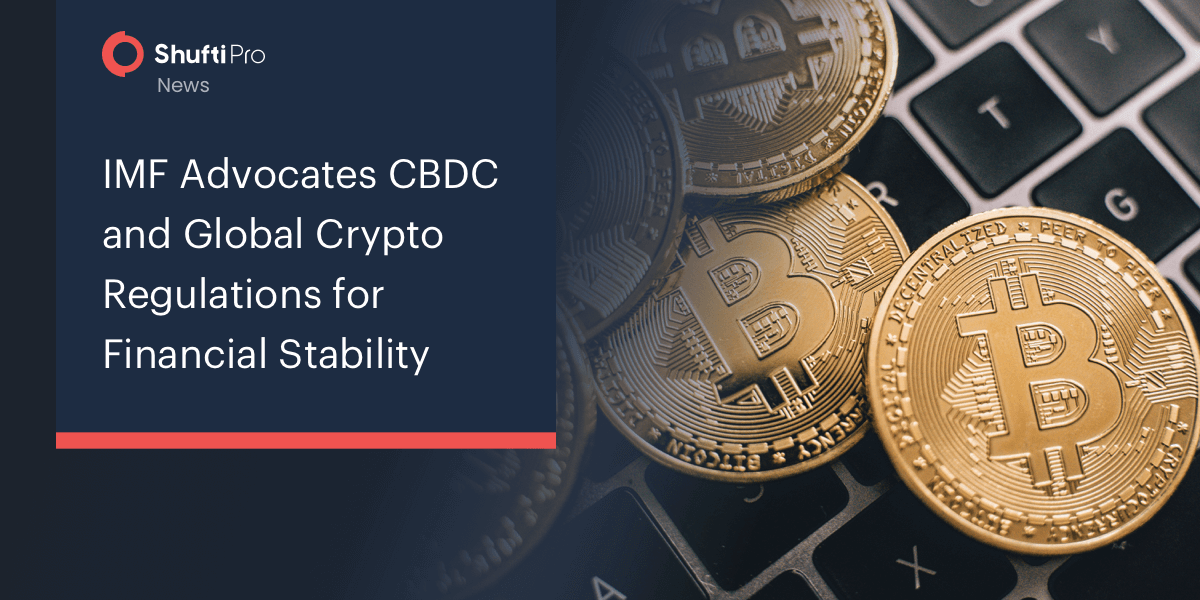IMF Advocates CBDC and Global Crypto Regulations for Financial Stability

The new policies advocated by the IMF seek to minimize financial risks associated with the global adoption of cryptocurrencies.
IMF, the International Monetary Fund, has released a set of policies to facilitate financial stability amid the global adoption of cryptocurrency.
The IMF showed its support for the emerging cryptocurrency industry, stating in its “The Crypto Ecosystem and Financial Stability Challenges” report how crypto assets are a tool for faster and cheaper cross-border payments. The report attributes high returns, transaction costs and speed, and standardised Anti-Money Laundering (AML) standards as the primary drivers for crypto adoption.
To combat the challenges of crypto adoption, IMF recommends that:
“Policymakers should implement global standards for crypto-assets and enhance their ability to monitor the crypto ecosystem by addressing data gaps. Emerging markets faced with cryptoization risks should strengthen macroeconomic policies and consider the benefits of issuing central bank digital currencies.”
The IMF suggests implementing a global standard for cryptocurrency to ensure the monetary stability of emerging countries. https://t.co/iCcRYnxjgK
— Cointelegraph (@Cointelegraph) October 4, 2021
The IMF report shows that the crypto market valuation has extended beyond Bitcoins, with a sharp increase observed in stable coin offerings.
In addition to issuing CBDCs, the IMF also recommends the introduction of “regulation that is proportionate to the risks and in line with those of global stable coins”.
In July 2021, the IMF announced plans to “step up” the monitoring of digital currencies. While highlighting the perks of digital assets, an older IMF report read that “payments will become easier, faster, cheaper and more accessible, and will cross borders swiftly. These improvements could foster efficiency and inclusion, with major benefits for all.”
The IMF also previously cited plans to meet the President of El Salvador, for discussing the implications and possibilities of making Bitcoin a legal tender.
Suggested Read: Crypto Regulations 2021 – What Digital Currency Providers Need to do











